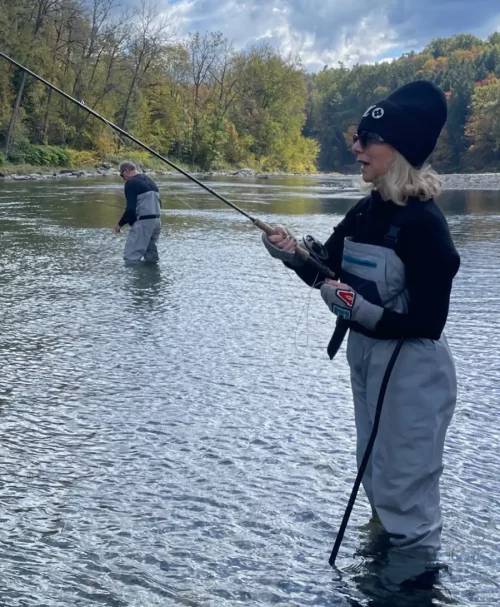
Age has never proved a hindrance to development. Whether learning a new activity, acquiring professional skills, or just gaining a wider outlook, learning provides a new lease on purpose. As an adult, the drivers are different—less about checking off a list, more about serious self-redevelopment. Lifelong learning is not about learning from a vacuum; it’s about changing. It provides a reminder that change and flexibility are for a lifetime, not a brief instance of youth.
It is not unusual for many adults to discover that returning to study has the effect of stimulating curiosity that had faded over the decades. The brain craves stimulation, and when one challenges oneself, creatively or technologically, one develops confidence, together with mental agility. At each new skill learned, no matter how modest, there is a ripple effect which can have a bearing on the way one confronts challenges, and opportunities, in life.
Stretching Your Career Limits
Adaptability is valued more than ever before throughout the workforce today. Labor markets shift rapidly, and workers who continuously learn remain competitive on a relevant level. Upskilling unlocks the doors towards new unexpected careers or forays into stability for uncertain prospects.
Ongoing learning isn’t limited to promotion seekers. Most people upgrading knowledge look to shift into completely different industries or occupations that are a better fit for values or interest. Classes in novel areas like automation, technological advancements, or even artistic areas help one remain a step ahead. For the individual involved in industrial or technological careers, instrumentation courses are a dynamic method for fortifying professional position and gaining knowledge on precision-based processes. This investment in such information isn’t merely professional advancement—it’s empowerment through knowledge.
Building Confidence Through Achievement
The greatest thing about lifetime learning is the sense of accomplishment that follows. It is proof that the learning ability never does disappear. After a bumpy ride, the conclusion is highly satisfying. Learning a task that previously did not look easy fortifies confidence and encourages the appetite for even tougher challenges.
Such confidence goes much deeper than education. This is how people communicate, problem-solve, relate, meet challenges—with curiosity, not fear. Someone who continues learning is full of passion, perseverance. This is how they confront challenges—with curiosity, not fear. Development becomes a permanent attitude, not a one-time experience.
Supporting Creativity and Personal Expression
The learning does not have to extend formally or even professionally either. Following a creative outlet has a similarly transformative effect. Pursuing a talent for paint, for writing, photography, or designing can deliver a sense of emotional release, a new sense of self-identity. Creativity promotes imagination, makes people less stressed, turning attention away from daily demands.
This experiential experience isn’t confined to art at all. Learning a skill such as a craft or graphic design, for instance, helps towards widening the experience of self-expression. For instance, learning custom signage avails yet another form of creative expression—to mix art with practical design. That is just one instance of what occurs when learning a skill closes the gap between imagination and application.
Establishing Social Relations and Mutual Growth
Learning tends toward connecting. Through workshops, online forums, or neighborhood programs, it engages people with others of a like interest and intent. These connections have the potential for growing into support networks that yield both inspiration and a sense of accountability.
Mingling with one’s fellow students helps one experience a sense of membership and shared advancement. This helps people remember that individual advancement alone does not happen. Motivation is built up through encouragement, and, more than often enough, through friendships of shared interest. Well into adult years, such relationships make a healthy contribution toward mental health and build emotional strength.
Keeping the Mind Active and Healthy
Educational activity and self-development have measurable effects on intellectual functioning. Studies verify that learning across a lifetime possesses the ability to improve memory, attention, and decision-making capabilities. Keeping the brain active and stimulated, it reduces the risk of mental decline with increasing years.
In addition to mental clarity, the learning process instills patience and discipline, which permeate all areas of life. Whether learning a new instrument, fly fishing, a foreign language, or a new technological program, the struggle does something worthwhile for the brain. This effort instills a feeling of energy and hope for the future.
Welcoming Change Without Aversion
Many hesitate to start learning again because of fear—fear of failure, being judged, or falling behind. Yet much of that fear dissolves when you make the first step. The reality is learning spaces nowadays are much more accessible and inclusive than ever. Through online course sites, flexible calendars, and community programs, there’s a starting place for every student at every age of life.
Embracing the idea that knowledge is changing frees a person up to learn with a sense of excitement and modesty. Change, rather than seeming scary, empowers. It facilitates a mentality that greets each difficulty as a potential opportunity for growth. Age, for all its limitations, confers perspective—and when combined with new learning, that perspective is a transformative engine.
Living a Purposeful and Fulfilling Life
Development of skills at any age does more than increase a person’s employability or intellect; it enriches life. It gives a sense of reason for being and fulfillment. It is able to transform daily living routines into meaningful experiences by infusing curiosity and a sense of achievement. For individual interest, professional growth, or artistic interest, efforts go towards a more enriched, inspired life.
The joy of learning transcends time. It spans generations, brings communities together, and emboldens people to own their narratives. The feeling of completeness that results from learning a new thing is a universal testament that it is indeed never too late to start afresh.
Growth isn’t a part of a specific phase of life; it’s a part of those who choose to pursue it. A new skill learned is a reminder that potential does not have a sell date on it. It develops, adjusts, and continues to craft a more complete, meaningful tomorrow.
XOXO,


